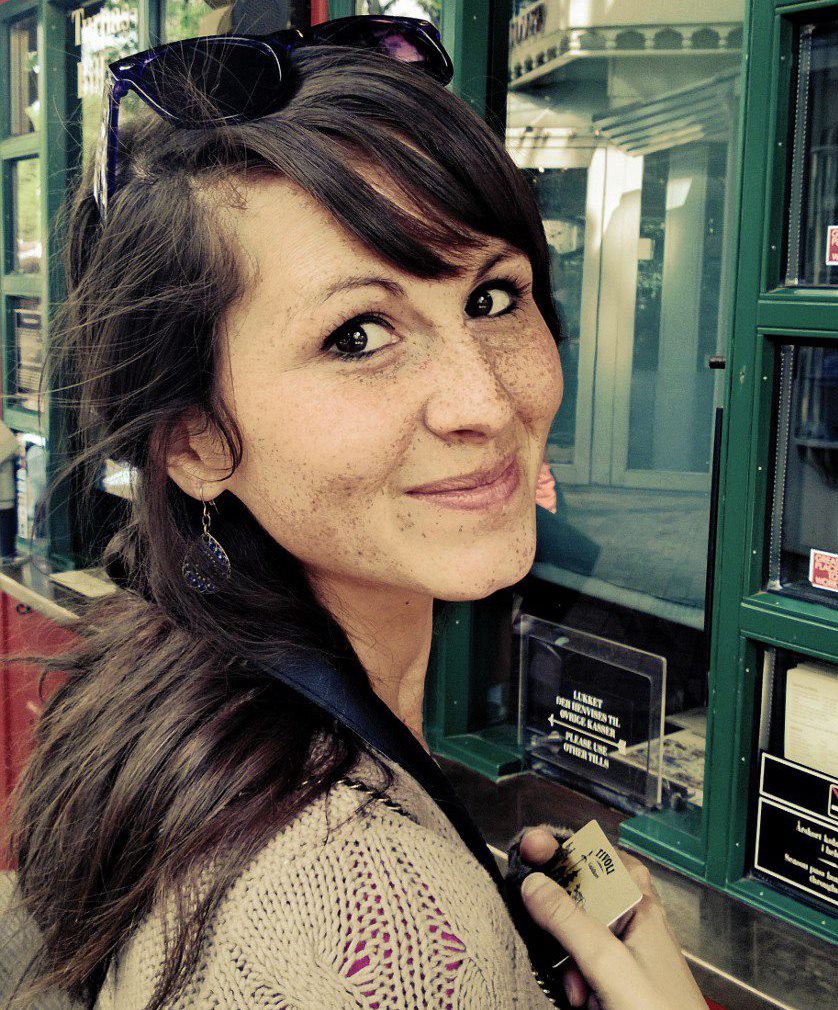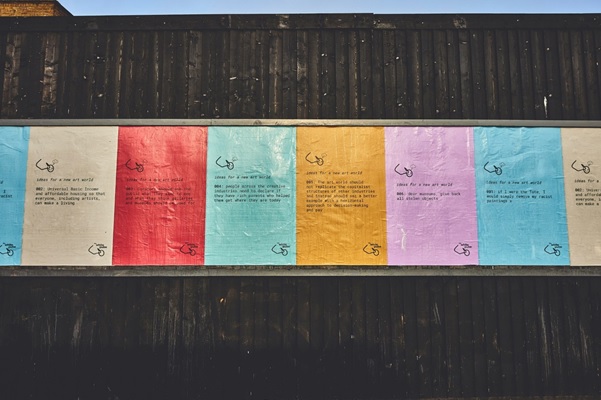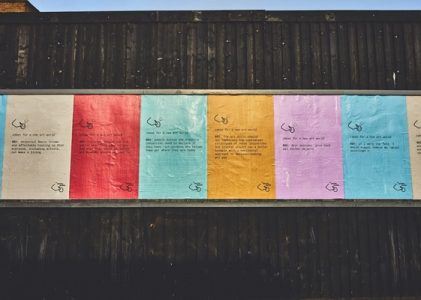
On 24th January 2022 Aid Alliance, in partnership with some of the biggest players in the humanitarian ecosystem, launched their new campaign – “We the Helpers.” In an effort to defend Aid and the 0.7% funding commitments, the campaign appeals to public sentiment in an entirely predictable way – statistically, as a matter of “fact.” Aid is helping. We / You are helping. All is positive. High five.
In the next breath a number of these organizations, if not maybe all to some degree, are participating in efforts to rethink, reform, “decolonize” the sector.
Bond UK, the “We the Helpers” campaign host and partner, has held sessions on ”shifting power for locally led development”, they offer peer learning anti-racism spaces and they frequently publish critical blogs. Dylan Matthews, CEO of Peace Direct, recently published on decolonization at a crossroads, in which he argued, amongst many other good points: “the lack of public acknowledgement of the problem deprives the discussion of much needed oxygen. We need to openly discuss issues of structural and overt racism and make public our commitment to challenging it wherever we see it.”
Yet the sector, guided – it might claim – by the fear of losing the support of an increasingly cynical public, continues to maintain the two discourses in parallel, snuffing openness in favour of saviour washing a far messier picture. As the Jubilee Debt campaign commented, by promoting a “dated and harmful narrative.”
This tension of interest within the sector, evident even within single organizations, risks the trust of reform activists – why, they will start to ask, should reform rhetoric be taken seriously when it fails to guide your actions and narratives? Furthermore, (and I argue more on this here) the public in donor countries should be entrusted with more than this half story – their tax paying vested interests combined with a current propensity to engage in social change efforts should instead be leveraged. And whilst tax paying publics are not the most important voice (that will always be the people and countries on the receiving end of aid and top down decision-making) they are nevertheless a critical stakeholder group – particularly, and unlike the resignation the sector internally nurtures, where recent occasions have illustrated the potential of public support to move the needle forward on issues of social justice.
The public in donor countries should be entrusted with more than this half story – their tax paying vested interests combined with a current propensity to engage in social change efforts should instead be leveraged.
But in order for that to happen, a different kind of public engagement is required. Namely nuanced, honest and inclusive. Multiple authors both part of and outside the NGO sector penned an article critically reflecting on the ”We the Helpers” campaign, aptly concluding, “Our introspection from years of conversations and initiatives needs to translate into the stories we collectively tell the public.”
But beyond reworked narratives of solidarity and justice over charity, I believe the sector needs to be transparent about the critiques it faces whilst welcoming the public into the introspective process itself. And if we look outside of the sector’s internalized reckonings to seek inspiration from other movements that are engaging the public in this way, with the goal of leveraging their support for needed shifts (in perception, of practice etc.), we can find many examples to draw on. It also reminds us that our ecosystem of change is bigger than us. Being situated on the fringes of the development / aid world and the grassroots / activist efforts in the UK, the following are three UK examples I love from non-aid related spheres of institutional, or activist-led, public engagement for social change.
The National Trust and Colonial Countryside
The UK’s (and Europe´s largest) membership based conservation charity, the National Trust, has been looking after historical properties, castles and land on behalf of the British public since its radical beginnings in 1895. More recently, it partnered with the University of Leicester´s Corinne Fowler to provide education on the properties and estates’ less acknowledged legacies – their colonial histories and connections.
Their work, and Fowler more personally, has received significant backlash, amounting to what has been called a “culture war.” Those determined to preserve the historically selective and idyllic portrayal of the British countryside declared the Trust´s efforts a “woke takeover” and organized themselves as the counter “Restore Trust” in part to lobby against it. Whilst the tension in direction likely persists and despite a pandemic related slump, the Trust has not backed down on its commitment to historical honesty. Memberships are again on the rise with a record number of new members signing up in recent months.
Key takeaways: The National Trust did not allow fear to dictate their public engagement approach, nor did they allow their more conservative constituents to obstruct change. Instead they observed an opening in public appetite, backed by a survey of its membership, to press ahead with the direction of their work. Furthermore, they did not shy away from nuance. The history and existence of heritage homes were never posited as either categorically good or bad, enabling members to both feel able to support the Trust and at the same time learn from an evolving institution. These gambles appear to be paying off. Memberships have not suffered, record online donations have been received and more broadly, particularly given the media space much of the backlash has enabled, the intended awareness of the link between colonialism and the countryside has entered the mainstream.
The efforts of the National Trust, and Fowler more specifically, to bridge academia, the National Trust, schools and the public broadly (through their multiple methods of engagement including research reports, online courses and child-led school projects) are an excellent example of what one Twitter user referred to as “relational leadership.” They have managed to bring together frequently siloed groups to collectively challenge public perceptions of countryside heritage.
Fowler explained to me that the success of Colonial Countryside was partly down to their “calling in” approach which, rather than fostering divisive “us and them” narratives, sought to “foster a collective sense of belonging” to the movement. Adding to that: “Colonial Countryside was a heartfelt project which invited people gently to consider fuller histories.”
Just as the aid sector grapples with the myths it tells about itself, on inherent morality and on what it can and cannot discuss, the National Trust was similarly up against the sacralized perception of the English countryside. In choosing to publicly and inclusively challenge that picture, they have injected “much needed oxygen” into their objective of providing the fuller history of the English countryside and heritage homes.
The White Pube and the art world
The White Pube is an arts focused multi-media collaborative identity of two friends, Gabrielle de la Puente and Zarina Muhammad, founded in 2015, in part to protest against exhibition reviews deemed “boringggg, said nothing, just bad chat by middle class white men.” They began writing reviews from their perspectives in a way considered to be more accessible and inclusive and have since been described as having “the energy and opinions to liven up an art world full of stale, male voices.” Their chosen name, a mischievous play on The White Cube gallery.
In the following years, The White Pube has expanded its remit beyond reviews, to counter and critique other issues within the art world. They have used their platforms to campaign for better conditions (for example for staff within art establishments), fairer and more diverse spaces and for greater transparency. They campaigned against Tate gallery staff contract conditions and mass redundancies and lent their weight to the outcry against the Rex Whistler mural that adorns the walls of the Tate´s restaurant. They used their channels to publish meeting minutes showing the Tate had been discussing the murals racist images since 2013, tweeting:
“if i were the tate, i would simply remove all my racist paintings x”
This tweet, along with other pointed “ideas for a new art world”, would find notoriety through the methods in which these ideas were shared with a broader public audience, beyond the “art world”, beyond social media alone, and in print. Their billboard campaign ran in London and Liverpool in 2021, and Rough Trade books have published the manifesto and accompanying essays in a Zine of the same name.

Key takeaways: Similar perhaps to Colonial Countryside, The White Pube utilized the public’s more recent appetite to engage in discussions on colonialism and structural racism, to up the ante on the messages and critiques they were putting out. Further, their significant efforts to disrupt the art world status quo are Patreon supported – demonstrating that this does not have to be big budget stuff. Their online work has been instrumental in garnering public support and transparency for specific initiatives but their offline approaches, the billboards and zines, are simply beautiful. Hard not to like. Bold and refreshingly direct.
Their methods which bypass narrative gatekeepers to deliver direct and clear messages, accessibly and authentically, might prompt us to explore the possible channels that could be utilized and/or created for communication, online and particularly in print, ideally beyond Guardian readership.
Right to Roam and Public Trespass
There is an exciting conversation underway in the UK with regards to land ownership (not disconnected to the work of Colonial Countryside) and public access to private land. Private land amounts to 92% of the English countryside and 97% of rivers, rendering them off limits to the public. Two key figures in the conversation are Guy Shrubsole, author of “Who Owns England”, and Nick Hayes, author of “The Book of Trespass.” Together they have founded the national Right to Roam campaign which seeks to extend the Countryside and Rights of Way Act “so that millions more people can have easy access to open space, and the physical, mental and spiritual health benefits that it brings.”
But if that is understood, the sector is left with contemplating what there really is to lose by doing so – or it could decide that there is simply too much to lose by doing so. Not really public support in aid itself, but more honestly jobs, should the message of reform, and more specifically the transfer of power and money, become publicly supported.
The localized branch of this initiative, Landscapes of Freedom, are campaigning for public access to the South Downs countryside and on 24th July 2021 organized a mass trespass attended by 300 members of the public. This was the first of many planned nationwide for 2022. Public engagement narrative has been respectfully complex, stating: “We know about the brutal legacies of enclosure, slavery and colonialism which have propped up the British aristocracy for centuries and have simultaneously severed people, particularly those most marginalised, from the land, while lining the pockets and expanding the estates of the richest.”
Key takeaways: This example builds on the former of bypassing power, they do not request permission of landowners to trespass. The campaign uses conceptually complex but accessible language, connecting history with the impact felt today and between injustices against certain groups of people with injustices against others, effective in building the case for solidarity. Engagement methods inform the public via multiple channels, but it takes a step further through its public act of trespassing. Practical, literal, bypassing of power.
Aid reform activists might achieve something similar, through supporting the public to actively bypass power – redirecting patronage from INGOs to those local to the countries in need of aid for example. And there are indications that this is already happening, where recent and current crises are eliciting public calls, in social and mainstream media, to direct support to verified local aid organizations.
Instead of towing the usual heroic narrative, public engagement from the aid sector could be done very differently. The sector could instead lead a more honest engagement process, acknowledging that the public is capable of engaging with complexity. The National Trust has demonstrated this, proving that not only can the public be brought along on institutional journeys of change, but that backlash attracted by doing so has the contrary effect of solidifying public solidarity.
But if that is understood, the sector is left with contemplating what there really is to lose by doing so. Not really public support in aid itself, but more honestly jobs, should the message of reform, and more specifically the transfer of power and money, become publicly supported.
In which case, it leaves to be seen what creative methods will emerge when the preservation of business as usual drives reform efforts, and its public engagement and action (in the North, the South and between the two), to navigate around the gatekeepers instead.
Tina Mason is a regretful development / aid generalist. She writes on medium and consults on proposal development, evaluation, research and accountability for both aid related and UK focused non-profit organisations.
